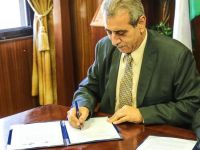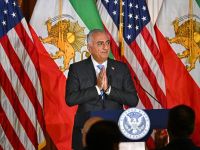Turkey has been successful in achieving the targets it pledged for the first eight months of 2000 in a stand-by agreement with the International Monetary Fund, IMF officials said Tuesday.
"Economic developments remain good and the program is on track," IMF Turkey desk chief Carlo Cottarelli told a press conference in Ankara at the end of a 12-day mission to evaluate Turkey's performance.
"Inflation is at its lowest since 1986 despite increasing oil prices, and data for the second quarter of 2000 show a very strong growth in gross national product," he added.
Inflation stood at 68.8 percent in 1999, and has so far fallen to 53.2 percent this year.
Cottarelli added that Turkey showed continued strong improvement in fiscal accounts and was also making progress in privatization, despite the delay in a key tender to privatize part of the state telecommunications company.
According to figures cited by the Turkish treasury chief, Selcuk Demiralp, the growth rate for the first half of 2000 was 4.3 percent and was expected to reach six or seven percent by year's end.
Demiralp said that Turkey had done well with regards to primary surplus, which stood at 4.5 quadrillion Turkish lira ($6.9 billion) at the end of July and was expected to reach six or seven quadrillion at the end of the year.
He also added that Ankara had managed to convert expensive internal debt, a massive burden on the Turkish budget, into lower interest-rate foreign borrowing.
"Foreign borrowing, foreseen at six billion dollars for 2000, has already reached $7.1 billion by the end of August," he said.
Tuesday's press conference comes a day after Turkish Prime Minister Bulent Ecevit warned the IMF that it should not dictate economic policies to Ankara following calls by Cottarelli for tighter wage control and higher electricity prices.
"The foreign institutions whose support we expect should monitor the macro-economic balances that we have agreed on instead of imposing on us certain policies and solutions," Ecevit said.
Tuesday Cottarelli simply said he "fully agreed" with Ecevit that international organizations such as the IMF were tasked with giving advice and not dictating specific measures.
Last December Turkey and the IMF hammered out a three-year, four-billion-dollar economic package of austerity measures aimed at reducing Turkey's chronic inflation and putting the country's economic house in order.
Under the programme, the Turkish government is planning to reduce inflation to between 20 and 25 percent by year-end — a target which experts say looks difficult to achieve — to 10 percent in 2001 and five percent in 2002.— (AFP)
© Agence France Presse 2000
© 2000 Mena Report (www.menareport.com)







